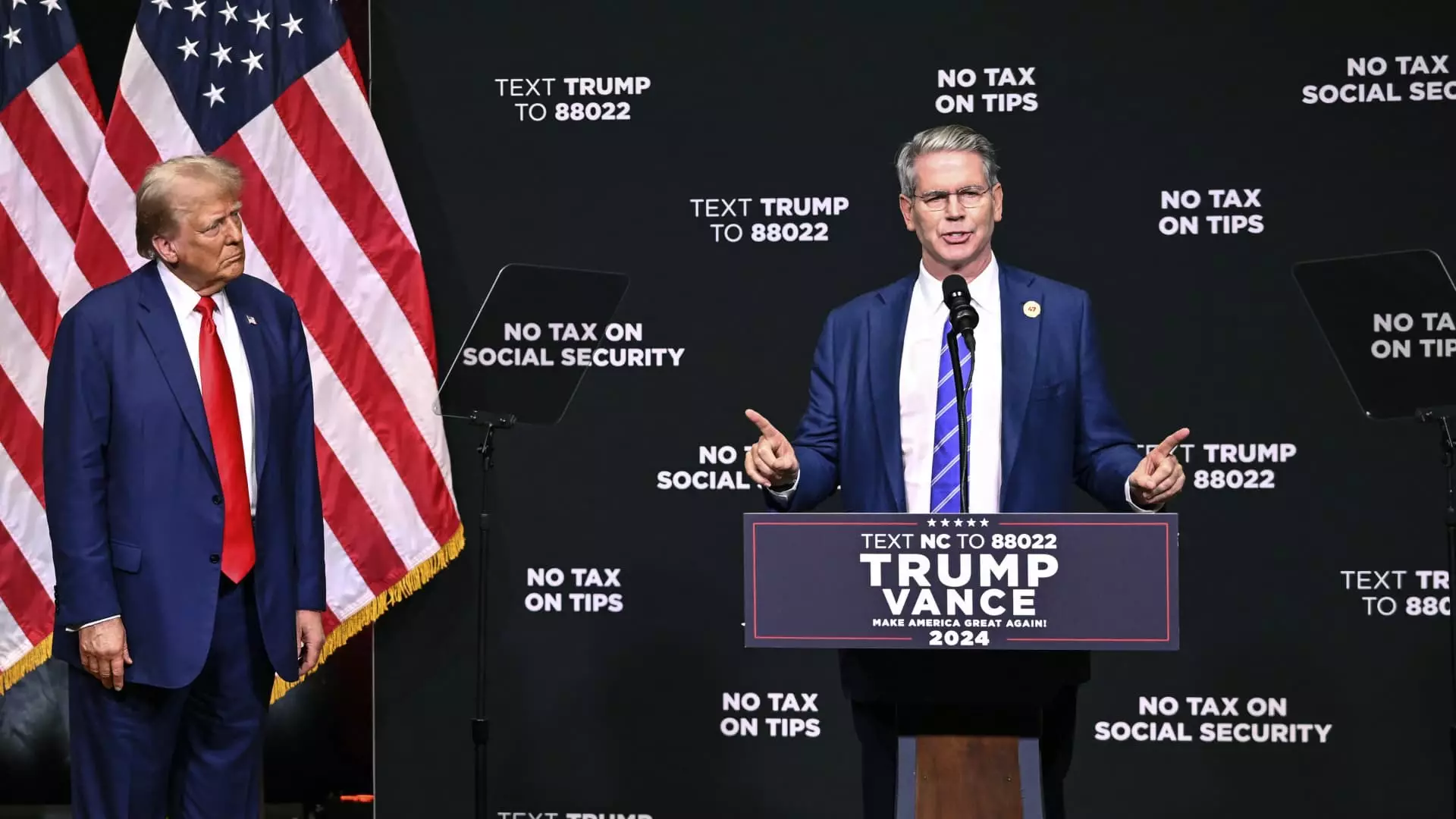With Donald Trump’s presidential election victory, the stage has been set for significant shifts in U.S. economic strategies. One of the critical appointments in his cabinet is the Secretary of the Treasury, a role that bears immense responsibility in shaping domestic and international financial policies. Recently, Trump indicated his preference for Scott Bessent, a hedge fund executive and founder of Key Square Group, to take this pivotal position. This choice highlights not only Bessent’s credentials as an experienced market player but also Trump’s inclination to surround himself with advisors he deeply trusts as he navigates the complex financial waters ahead.
Bessent’s appointment would position a familiar ally alongside Trump during a crucial period characterized by rising debt levels and economic challenges. As America grapples with both growth and long-standing fiscal issues, Bessent intends to apply his substantial market knowledge and insights into formulating economic policies that align with Trump’s vision for the country.
The Challenge of Economic Management
At 62 years old, Bessent brings forth considerable experience, but the economic landscape he will inherit is daunting. The total U.S. debt is already over $36 trillion, with a significant portion owed to the public. Projections show that by fiscal 2025, the national deficit could near $2 trillion. Moreover, the fire of inflation continues to burn, making fiscal stewardship more challenging than ever. Bessent’s role as Treasury Secretary will not only involve overseeing public finance management but also defining policies that stimulate economic growth without exacerbating the burgeoning debt crisis.
Trump’s statement regarding Bessent emphasizes his recognition as “one of the World’s foremost International Investors and Geopolitical and Economic Strategists.” This description underscores the belief that Bessent is not just a financial manager but a visionary who can steer the country through turbulent economic waters. His proposed economic agenda includes a revival of U.S. manufacturing, supporting energy independence, and implementing gradual tariffs—policies that resonate with Trump’s broader economic objectives.
However, Bessent’s past connections also cast a shadow over his nomination. His tenure as chief investment officer at George Soros’ fund raises questions about potential conflicts of interest, especially in a Republican administration that has often been at odds with Soros’s progressive views. The scrutiny surrounding their association will likely persist as Bessent steps into the public eye and seeks to reassure skeptics of his allegiance to Trump’s economic platform. While Trump has confidently stated that Bessent will support his policies aimed at leveling trade imbalances, his previous ties to Soros could pose challenges in building consensus within a polarized political landscape.
Bessent’s experience extends beyond finance, as he is known for his philanthropic efforts tied to prestigious institutions like Yale University. This aspect of his background could help cultivate a more favorable public image. Nevertheless, navigating the dichotomy between his financial acumen and his past affiliations will be an essential task as he assumes a role that demands confidence from both the administration and the citizenry.
Within Trump’s inner circle, not everything is straightforward regarding Bessent’s nomination. Some advisors have openly expressed support for alternate candidates, such as Howard Lutnick of Cantor Fitzgerald. This divergence of opinion indicates the underlying tension and differing economic philosophies that exist within the President-elect’s team. Bessent will need to navigate this landscape shrewdly, fostering cooperation while pushing forward on essential economic reforms.
Moreover, his capacity to execute Trump’s promises, such as robust tariff reductions, remains under scrutiny. Critics within Trump’s advisory team have pointed out that Bessent’s stance on tariffs may not be as rigorous as desired, signaling potential challenges ahead as he attempts to unify his party around a coherent economic strategy.
As Scott Bessent prepares to take on the responsibilities of Treasury Secretary, the American public is left pondering not only the implications of his appointment but also the broader economic direction of the nation. His familiarity with the markets, clear alignment with Trump’s economic vision, and his ability to tackle daunting fiscal challenges will be put to the test. The complex interplay of economic recovery, government debt handling, and internal political dynamics will shape both Bessent’s legacy and Trump’s presidency.
In an era where economic issues dominate the national agenda, Bessent’s strategies and decisions may significantly impact the U.S. economy for years to come. It will be crucial for observers to monitor his actions closely, as his efficacy in leading the Treasury could either reinforce Trump’s vision or highlight deeper fractures within the administration. The eyes of the nation will be firmly fixed on how successfully he navigates these choppy waters as the new administration takes shape.


Leave a Reply